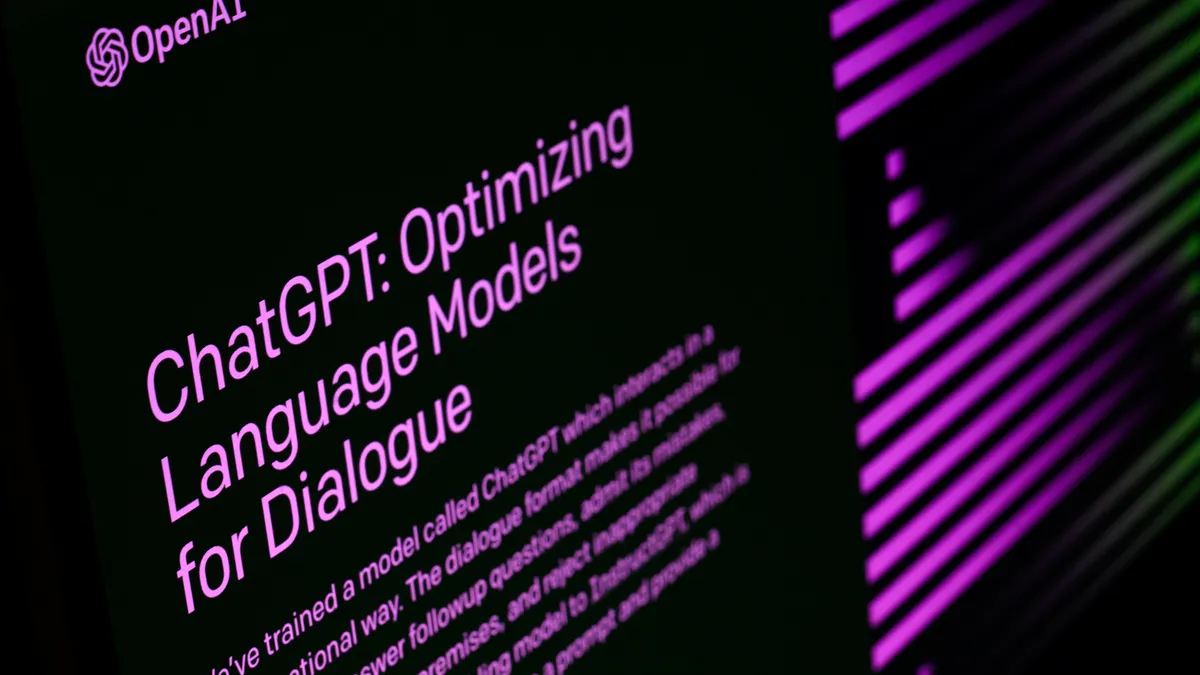Dive Brief:
- OpenAI is making its ChatGPT and Whisper artificial intelligence (AI) solutions available via API, the startup announced.
- OpenAI claims it’s achieved a 90% cost reduction for ChatGPT since December through better optimization. The new API operates off a model family, called “gpt-3.5-turbo,” that is the same backbone as the one used in the main ChatGPT product.
- Snap Inc., Quizlet, Instacart, Speak and Shopify are all leveraging the ChatGPT API for new features. Enterprise-level AI offerings continue to gain traction as marketers seek concrete applications for the attention-grabbing — and controversial — technology.
Dive Insight:
ChatGPT has quickly evolved from a fun — and occasionally creepy — distraction into an enterprise solution attracting substantial interest. OpenAI making ChatGPT available via API means businesses can more easily layer the software into their own apps and websites and support native experiences on those channels, including chatbots. The API is also about 10 times cheaper than the existing GPT-3.5 models, along with being the best version currently available for non-text-based applications, according to the company.
The move primes ChatGPT for wider adoption among brands and platforms, capitalizing on the massive amount of hype that’s surrounded the product since its November launch. Snap Inc. earlier this week unveiled a My AI chatbot for Snapchat+ that relies on ChatGPT API. OpenAI in the announcement detailed several other partnerships built on the tech.
Quizlet, a learning platform that’s worked with OpenAI for several years, is leveraging ChatGPT API for a tutoring function dubbed Q-Chat that can answer students’ questions. Instacart is pairing the third-party AI with its own while using product data from retailers to provide shoppable answers to questions such as, “How do I make great fish tacos?” A planned feature, called Ask Instacart, is slated to debut later this year. Shop, the consumer-facing app for e-commerce firm Shopify, is similarly supporting a new shopping assistant with ChatGPT API.
These early use cases show how ChatGPT is sparking renewed interest in areas like chatbots that have stoked excitement over the years but often failed to live up to their promises and frequently frustrated end users. ChatGPT itself remains prone to errors and off-putting responses, while generative AI as a whole is a thorny field that’s raised serious questions around ethics and ownership.
Still, the business world seems all in on AI at the moment. Microsoft invested $10 billion in OpenAI in January and is using its software to upgrade Bing and Edge. Bain & Company last month forged an alliance with OpenAI that will help the consultant design bespoke AI services for blue-chip clients including Coca-Cola. Separately, Google and Meta Platforms are ramping up their own AI-based initiatives to keep pace.















